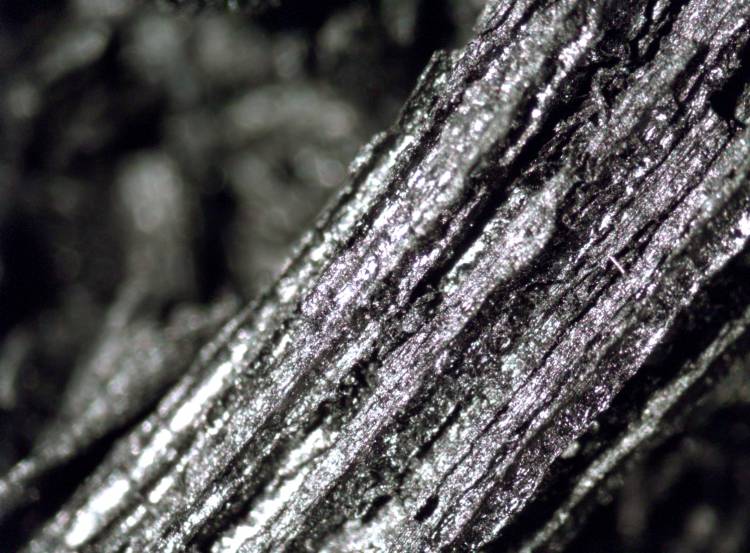Biochar Registration in Canada for Energy, Soil and Horticultural Use
The Canadian Food Inspection Agency (CFIA) requires, by law, that all biochars sold as soil supplement in agriculture and horticulture be certified. To obtain this registration, one must demonstrate that the biochar is harmless for the environment through analyses of carbon, nitrogen and ash contents as well as some toxicological analyses are required such as metal, dioxin and furan contents.

Canadian Regulation of Biochar
Biochar has many interesting properties and may be used in different sectors, e.g. energy, agriculture, horticulture and many others.
No Canadian regulation covers the use of biochar pellets as a combustible. However, producers tend to follow technical specifications set by the industry, such as the ISO TS 17225-8 (ISO 2016) standard, to ensure consistency and to classify their products in compliance with international standards for pellets. These ISO standards refer to several properties that must be declared, namely the origin and source of the organic material, moisture, metal, ash and fines contents, calorific value and density. By respecting these specifications, producers can more easily offer their biochar pellets on the international market.
The Canadian Food Inspection Agency (CFIA) requires, by law, that all biochars sold as soil supplement in agriculture and horticulture be certified. The CFIA is responsible for this certification under the Federal Fertilizer Act as a level II soil supplement (CFIA 2017). This is applicable for imported and local biochars. The procedure and the analyses required to obtain a registration number are presented on the CFIA web page: http://www.inspection.gc.ca/plants/fertilizers/registration-requirements/guide-to-submitting-applications-for-registration/eng/1456415167275/1456415380069.
How to get the certification
Currently, the registration and certification process takes approximately 12 to 18 months and fees are 915 CAD. To our knowledge, as of December 2018, only 6 biochars have obtained this certification/registration number in Canada (Table 1).
In short, to obtain this registration, one must demonstrate that the biochar is harmless for the environment through analyses. Theses analyses must be performed by a certified laboratory and analytical results must be included in the registration file. Some of them are required and need to be indicated in guarantee analysis section on the product label. These include carbon, nitrogen and ash contents. In addition, some toxicological analyses are required such as metal, dioxin and furan contents (Table 2). The number of required analyses depends on the number of batches produced during the last 3 years. Together, these analyses cost about 4,000 to 4,500 CAD. Price and analysis duration (about 2 months) varies from laboratory to laboratory. Certain authors in the literature and the International Biochar Initiative recommend additional analyses such as germination rate and earthworm avoidance, which may be of interest to prove that biochar is not harmful to plants or soil organism. However, these tests are not mandatory in Canada.
For the registration process and during the registration validity time, the feedstock should be clearly identified and archived (date, quantity, and geographic origin) by the producer before thermo-transformation into biochar. To obtain this registration, information such as application method, safety protection and feedstock must also be indicated on the label. The label must be validated by the CFIA prior commercialisation (Fig. 1).
Figure 1: BiocharFX label from Airex Energy Inc. approved by CFIA for commercialisation. The registration number obtain from CFIA for this BiocharFX is 2018072A.
Table 1: Registered biochar products list from CFIA in Dec. 2018
| Company Name |
Contact information (web site or address) |
Registration Number | Product Name | Guarantees |
| Airex Energy Inc. | http://www.airex-energy.com/en/home | 2018072A | BiocharFX | 1% nitrogen (max); 60% carbon (min); 15% ash (max) |
| Airterra Inc. | https://www.airterra.ca/ | 2015149A | Airterra biochar - biochar soil supplement solution | 100% biochar; 70% carbon; 25% total ash |
| Diacarbon Energy Inc. |
2250 Boundary Rd #120, Burnaby, BC V5M 3Z3 001-604-291-0001 |
2016002A | Diacarbon - biochar | 80% carbon; 5% ash |
| Haliburton Forest and wildlife reserve Ltd.. | https://www.haliburtonforest.com/ |
2016055A |
Haliburton forest and wildlife reserve Ltd. – Haliburton forest biochar | 100% pyrolized sugar maple (Acer saccharum) sawdust; Pyrolized maple sawdust; 70% carbon ; 8% ash |
| The Prasino Group | - | 2016077A | Biochar now – IBI class 1 | 0.0021% nitrogen; 0.0013% available phosphoric acid; 0.036% soluble potash; 100% biochar; 75% to 85% carbon; 0.5% to 1.5% ash |
| Titan clean Energy Products Corporation | https://www.titan-projects.com/mayan-gold | 2017123A | Mayan gold - biochar soil enhancer | 100% biochar; 75% carbon; 15% ash |
Table 2: Toxicological cumulative level additions to soil over 45 years from CFIA in Dec. 2018 for metal and dioxin and furan contents (PCDD/Fs) 1
| Metal | Maximum Acceptable Cumulative Metal Additions to Soil over 45 Years (kg metal/ha) |
|
Arsenic (As) |
15 5,355 |
1: These toxicological levels must be calculated from the elementary content of biochar and the application rate recommended by the biochar producer.
References
ISO 2016. ISO-TS 17225-8 on the Solid biofuels -- Fuel specifications and classes -- Part 8: Graded thermally-treated and densified biomass fuels (https://www.iso.org/standard/71915.html).
CFIA 2017. Guidelines to Completing the Fertilizer or Supplement Registration Application Form. http://www.inspection.gc.ca/plants/fertilizers/registration-requirements/guidelines-forms/eng/1346531775900/1346537405987
Written by:

Sylvain Bertrand1 et Sébastien Lange2
1: CEO Airex Energy Inc. 2500, rue Bernard-Lefebvre, Laval (Québec) Canada, H7C 0A5.
Phone 450.661.6498 ext. 219
sbertrand@airex-energie.com
http://www.airex-energy.com/en/home
2: Researcher, Biopterre, 1642, rue de la Ferme, Sainte-Anne-de-la-Pocatière (Québec) Canada, G0R 1Z0
Phone: 418 856-5917 ext. 219
sebastien.lange@biopterre.com
http://www.biopterre.com/
















